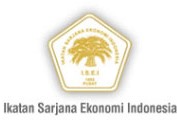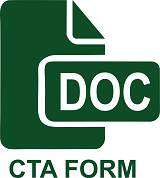Human Resources Identification in Ever Inactive Village-Owned Business Entities
(1) Sekolah Tinggi Ilmu Ekonomi Jambi
(2) Sekolah Tinggi Ilmu Ekonomi Jambi
(3) Sekolah Tinggi Ilmu Ekonomi Jambi
Abstract
This research to identify the condition of human resources in Village-Owned Business Entity (abbreviated as VOBE in this research) that ever inactive in West Tanjungjabung Regency . The method used in this research is survey with descriptive analysis. The result showed from 27 VOBE that were ever inactive in 2017, there are still 2 villages that haven't started to operate yet since they were built, due to passive administrators. Dominant businesses are service and trade. There was advantegous business unit in the VOBE, it didn’t prevent the VOBE to stop operating. The knowledge of VOBE management owned by respondents who are the village head and the head of VOBE was categorized as deficient. The motivation of the village head was in avarage category while the head of VOBE was persistence in the deficient level. The communication between respondents was categorized as adequate. Even though the head of village had avarage motivation, passable communication skill as the advisor, his knowledge was still minimum. The other obstacles for the village head was the head of VOBE was also having minimun knowledge about managing VOBE and also lack of motivation to run it.
Keywords
Full Text:
PDFReferences
Agunggunanto, E. Y., & Darwanto, E. W. K. (2016). The Development of Independent Villages Through the Management of Fitrie Arianti Village Diponegoro University, Semarang. Journal of Economic and Business Dynamics, 13 (1), 67–81. Retrieved from doi: https://doi.org/10.34001/jdeb.v13i1.395%0A
Ali, I. I., Sutarna, I. T., Abdullah, I., Kamaluddin, K., & Mas’ad, M. (2019). Inhibiting and Supporting Factors of Village-Owned Enterprises in the Gold Mining Area in West Sumbawa. Sosiohumaniora, 21 (3), 349–354. https://doi.org/10.24198/sosiohumaniora.v21i3.23464
Ariutama, I. G. A., Saputra, A. H. Sukmono, R. (2014). The Role of Village-Owned Enterprises (Bumdes) To Rural Development: A Comparative Institutional Analysis. 59–65. Retrieved from http://ejournal.mkduncen.ac.id/index.php/keuda/article/view/53
M. Rialdi Syaputra, Daulay, A. R., & Elwamendri. (2017). Bumdes Development Model To Increase Community Innovation and Independence in Jambi Province. Retrieved from http://web.jambiprov.go.id/skpd/site/litbang.jambiprov.go.id/profil/publikasi
Ni Komang Ayu Sri Swandari, Setiawina, N. D., & Marhaeni, A. A. I. N. (2017). Bumdes employees in Jembrana Regency Faculty of Economics and Business, Udayana University (UNUD), Bali, Indonesia Introduction One way to achieve economic growth in rural areas is through the growth of village micro-institutions, and one of them. Journal of Economics and Business, 4 (Volume.06.No.04.Tahun 2017), 1365–1394. Retrieved from https://ojs.unud.ac.id/index.php/EEB/article/view/24184
Notoatmodjo, S. (2012). Health Research Methods. Jakarta: Rineka Cipta.
Riswandi. (2013). Psychology of Communication. Yogyakarta: Graha Science.
Setyobakti, M. H. (2017). Identification Of Business Enterprises Bumdes Based On Social And Economic Aspects (Case Study at BUMDes Ijen Lestari Tamansari Village District of Banyuwangi). JEMA: Scientific Journal of Accounting and Management, 14 (02), 101. https://doi.org/10.31106/jema.v14i02.592
Sujarweni, V. W. (2015). Statistics for Health (Gava Media). Yogyakarta.
Sulaksana, J., & Nuryanti, I. (2019). Strategy for Developing Village-Owned Enterprises (Bumdes) Case in Bumdes Mitra Sejahtera Cibunut Village, Argapura District, Majalengka Regency. Journal of Agricultural and Agribusiness Economics, 3 (2), 348–359. https://doi.org/10.21776/ub.jepa.2019.003.02.11
Suparyadi. (2015). Human Resource Management, Creating Competitive
Advantages in Relation to HR Competencies (A. Offset, ed.). Yogyakarta.
Ulber, S. (2010). Social Research Methods. Bandung: PT.Refika Aditama.
Wawan & Dewi. (2010). Theory and Measurement of Human Knowledge, Attitudes and Behavior. Yogyakarta: Nuha Medika.
Refbacks
- There are currently no refbacks.

This work is licensed under a Creative Commons Attribution 4.0 International License.







